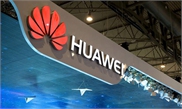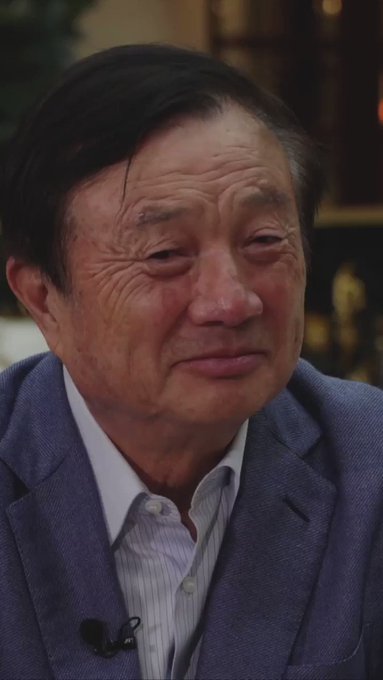https://youtu.be/nzhZGUfaZhI
China-U.S. trade tensions | Mideast tensions take turn for worse
https://youtu.be/eQbQbvGBDaM
封杀华为 发难大疆 美滥用国家力量打压中国企业!| CCTV中文国际
https://youtu.be/dtT0rHgJ9-IGrowing US pressure won't force China to submit
The US Department of Homeland Security warned that drones pose a
potential information risk because they contain components that can
compromise users' data and share information on servers other than
users.
Since nearly 80 percent of the Unmanned Aerial Vehicle (UAV) drones in North America are produced by China's Dajiang Innovation (DJI), a Shenzhen-based company, analysts generally believe that tarnishing DJI's reputation may be laying the groundwork for taking actionsagainst DJI.
DJI is the world's largest producer of civilian drones and is said to control more than 70 percent of the world's civilian drone market. The drones it produces are not only good in quality but also cheap. Many products are under $1,000, so they are popular and increasingly versatile.
The US military is also a DJI drone user. The use of DJI drones by the US military has not completely stopped following the controversy over its information security. This shows that while the US has real concerns about the information security risks of DJI UAV , there is no real evidence to support such concerns.
The US Department of Homeland Security raised the issue of the information security risks of UAV to increase leverage and pressure on China after the US decision to cut off supplies to Huawei. It seems Washington is in a hurry to press China to make concessions and reach a trade deal at an early date beneficial only to the US.
The vast majority of users in the US use DJI drones in non-classified areas. The airspace over sensitive US institutions is closed to drones and there is another set of security measures that have nothing to do with the use of DJI drones in the US market. The prevention of forest fires, assistance with construction layouts, and the development of express delivery services to remote areas are obviously not the direction that intelligence agencies are aiming for. It is hard to believe that DJI has an incentive to engage in "intelligence activities" at the risk of being shut out of international markets.
The US is abusing the concept of national security. It is the US that was caught a few years ago spying on the leaders of its allies. It is now saying that Beijing's intelligence threat is everywhere. A big part of it is putting on a show. It may be partly because the US does install a lot of "back doors" into its electronic exports, Washington thinks other countries will do the same.
China will not fall into the trap to make unconditional compromises as Washington increases its pressure. If the US cracks down on Chinese companies, American consumers and suppliers will also suffer losses.
The US is having a profound effect on the global economic order by abusing national security and trampling on commercial principles. Current US administration is destroying the reputation and national image that generations of Americans have built. Such arrogance and hegemony are by no means good signs for the US..
Since nearly 80 percent of the Unmanned Aerial Vehicle (UAV) drones in North America are produced by China's Dajiang Innovation (DJI), a Shenzhen-based company, analysts generally believe that tarnishing DJI's reputation may be laying the groundwork for taking actionsagainst DJI.
DJI is the world's largest producer of civilian drones and is said to control more than 70 percent of the world's civilian drone market. The drones it produces are not only good in quality but also cheap. Many products are under $1,000, so they are popular and increasingly versatile.
The US military is also a DJI drone user. The use of DJI drones by the US military has not completely stopped following the controversy over its information security. This shows that while the US has real concerns about the information security risks of DJI UAV , there is no real evidence to support such concerns.
The US Department of Homeland Security raised the issue of the information security risks of UAV to increase leverage and pressure on China after the US decision to cut off supplies to Huawei. It seems Washington is in a hurry to press China to make concessions and reach a trade deal at an early date beneficial only to the US.
The vast majority of users in the US use DJI drones in non-classified areas. The airspace over sensitive US institutions is closed to drones and there is another set of security measures that have nothing to do with the use of DJI drones in the US market. The prevention of forest fires, assistance with construction layouts, and the development of express delivery services to remote areas are obviously not the direction that intelligence agencies are aiming for. It is hard to believe that DJI has an incentive to engage in "intelligence activities" at the risk of being shut out of international markets.
The US is abusing the concept of national security. It is the US that was caught a few years ago spying on the leaders of its allies. It is now saying that Beijing's intelligence threat is everywhere. A big part of it is putting on a show. It may be partly because the US does install a lot of "back doors" into its electronic exports, Washington thinks other countries will do the same.
China will not fall into the trap to make unconditional compromises as Washington increases its pressure. If the US cracks down on Chinese companies, American consumers and suppliers will also suffer losses.
The US is having a profound effect on the global economic order by abusing national security and trampling on commercial principles. Current US administration is destroying the reputation and national image that generations of Americans have built. Such arrogance and hegemony are by no means good signs for the US..
Read more:
US orchestrates self-defeating maneuvers
Chinese people do not know whether we should call US
approaches hegemonic politics or profiteering politics. But in short,
they are crooked means. The threat of tariffs will not work. Neither
will US threats against Chinese companies create a shock wave against
China. The US is picking a wrong opponent at a wrong time. It will find
no way of crafting a good result from a strategic mistake.
世界级影响!封杀华为问题已超过中美经贸问题!美国沉不住气,特朗普后院起火!
https://youtu.be/h7ACR5g-cKM
华为公开宣布主权!5G不再共享!所有工厂撤离美国,美股瞬间暴跌,特朗普全完了!
https://youtu.be/1rqJg_seI1s
https://youtu.be/r1DPqBtykWk
中國是世界上唯一的文明!
https://youtu.be/XixqLWWTeEw
"What China Will Be Like As A Great Power" : Martin Jacques Keynote (32nd Annual Camden Conference)
https://youtu.be/uBjvklYLShM
 |
| http://www.you-books.com/book/M-Jacques/When-China-Rules-the-World
Related post:
华为不惧美国封杀 美式霸凌失道寡助!Huawei's goodwill gesture being treated unscrupulously by the US ! |






































